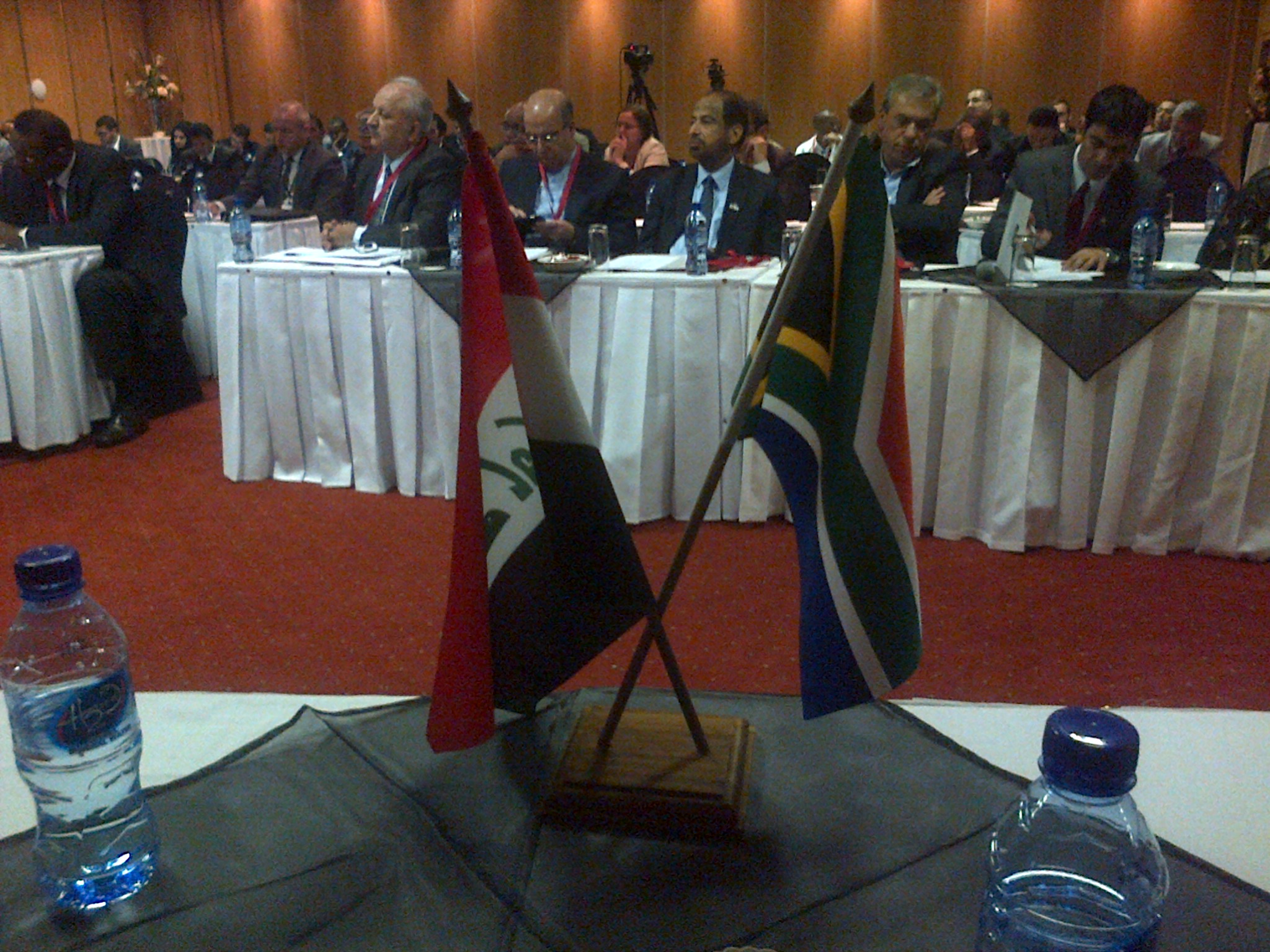Amidst a rise in extremist activity across Northern Africa and the Middle East, The Iraqi Embassy in South Africa spearheaded a discussion on ways to curb the escalating threat. On Thursday, the embassy hosted a symposium at its offices in Pretoria, bringing together over 80 participants including several foreign diplomats, for a day on intense discussion. The event centered on the topic of ‘Understanding & Countering Extremism & Terrorism in Africa and the Middle East’. Several experts from different conflict-hit regions addressed the seminar about radicalism in their respective countries.
The seminar comes in a year which has seen the unexpected rise of the biggest threat to stability in the Middle East in well over a decade. The Islamic State (IS) group has made headlines throughout the year for its campaign to establish an Islamic caliphate in Northern Iraq and Syria, as well as its brutal beheadings of several Western journalists and aid workers.
One of the major talking points at Thursday’s seminar was the examination of an open letter, endorsed by over 120 ulema from across the globe, outright condemning the actions of IS. The letter also sought to address the group’s leader, Abu Bakr al-Baghdadi, directly.
“The letter was to tell him that he has no right to declare a caliphate, and they way in which he is doing things is contrary to Islam,” said VOC senior journalist Shafiq Morton, reporting from the symposium.
Amongst those in attendance was journalist and VOC Drivetime host, Shafiq Morton, who chaired the opening session on the facts and consequences of extremist activity.
Whilst there has been global condemnation and anger over the actions of IS and other radical groups, little has been done to look at actual solutions to addressing the crisis. As such, the symposium focused heavily on discussing possible ideas. The general feeling was that because the issue of extremism was a long term one, any resolve would also need to be sustainable.
The conference also coincided with the release of a controversial US report, which detailed the extent of torture methods used by the CIA against suspected terrorists in US detention centres. Participants in the symposium were extremely critical of the torture methods, with the main argument that “extremism breeds extremism”. In this context, the CIA’s treatment of prisoners was in fact fueling further radical activity.
“The Iraqi people that I have spoken to here are saying that the report is just the tip of the iceberg, and that there is much more to come. They are grateful that the report is out, but at the moment the overriding impression is that it is superficial,” Morton said.
During the later sessions, particular focus was place on the role and responsibility of the media in reporting on these groups.
Morton said it was imperative that the media strayed away from using “blanket terminologies” like militant, extremists, and sunnis when referring to radical groups. He stressed that the over use of these terms were making them ultimately meaningless.
However, he foresaw the biggest problem as being the manner in which these stories were being reported.
“The biggest problem in the whole situation is that stories are written and broadcast without any context. There is no history, there is no geography, and there is no understanding of the geopolitics,” said Morton, who chaired the opening session on the facts and consequences of extremist activity.
A major concern around extremist groups has been the successful nature of their recruitment propaganda, with ISIS alone rumored to have well over 20 000 foreign fighters. The recruitments methods have been described as “extremely sophisticated”, even amongst groups like Al-Shabaab and Boko Haram in Africa.
With regards to solutions to the crisis, one of the suggestions that came up quite prominently was the need for a lot more education.
“We need to have more seminars and symposiums where you get the media together, and try and explain to them what is happening in the situation. Also, to bring people who are affected by it to discuss it,” Morton explained.
Other topics at the symposium included national, regional and international obligations and responses to extremism, the African Union’s (AU) counter-terrorism frameworks, the role and responsibilities of religious leaders and organizations, as well as civil society’s response. VOC (Mubeen Banderker)






 WhatsApp us
WhatsApp us 


1 comment
ya ya ya! but tell the mjc jamiats uucsa et al that you cant achieve anything positive if your main drive is to vilify the shia through concerted propaganda at all the masajid…….